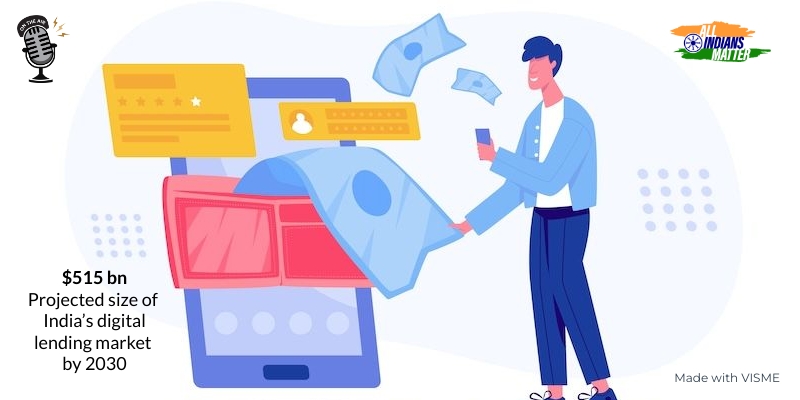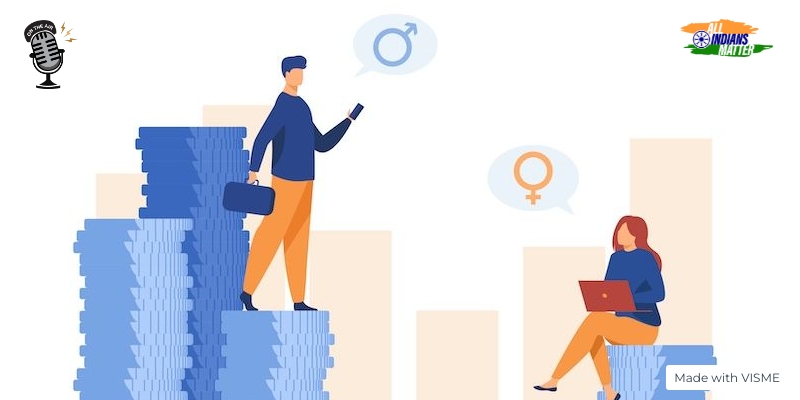Ashraf Engineer
October 21, 2023
EPISODE TRANSCRIPT
Hello and welcome to All Indians Matter. I am Ashraf Engineer.
From tomato prices to that of other essential commodities and even the cost of industrial raw materials, inflation has been perhaps the top global concern over the past 18 months. Across the world, central banks raised rates to hit the brakes on inflation but it met with mixed success. There is no agreement on how long this inflationary period will last or how best to tackle it. A lot has been written and said about it and that’s not what I want to focus on in this episode. I want to talk about the long-term effects of inflation, how it affects you even after it has cooled.
SIGNATURE TUNE
Persistently high inflation distorts economic decisions around savings and investments. For example, the so-called ‘shoe-leather cost’ of holding money in your bank account. When inflation is high, because the interest offered in such accounts is low and the value of your money is declining faster because of inflation, you are actually losing money without realising it. That’s because the money in your account declines in purchasing power as inflation rises. So, let’s say you have Rs 100 in your bank account and at the end of the year, with interest, that becomes Rs 104. However, with inflation raging through the year, that Rs 104 will buy you fewer groceries or anything else than the Rs 100 could at the start of the year.
At the same time, it’s important to remember that inflation and cost of living are interconnected concepts, but not synonymous. Inflation refers to a gradual increase in prices, while the cost of living refers to how much you need to spend at any given moment.
So, when inflation rises, so does the cost of goods and services. This erodes your purchasing power. Now, if you’re someone with a fixed income at the lower end, inflation can even rob you of your ability to buy necessities like food and medication. Naturally, this affects poorer households disproportionately because they spend virtually all of their income on essentials. Richer households, on the other hand, are able to adapt more easily by spending less on non-essentials.
Inflation is also accompanied by uncertainty, which can affect economic growth and thus job creation. There is an inflation risk premium added to long-term interest rates, which complicates planning and contracting by business and labour – all of which are essential to capital formation. Inflation also makes it more difficult for households and businesses to reallocate spending.
The data, of course, is clear that high rates of inflation – say, 10% or more – pull down long-term economic growth.
Among the long-term consequences of inflation are:
- Higher interest rates: In times of high inflation, banks and other financial institutions raise rates to balance the loss of the purchasing power of their funds. This discourages business borrowing, which leads to less investment in capital goods, technology and job creation.
- Lower exports: Since input costs rise, the price of finished goods meant for exports will rise too. This makes our goods less attractive and leads to a decline in export orders.
- Lower savings: Inflation means you spend more on everyday items, leaving less to save and invest. But your savings are needed to supply the financial markets, allowing businesses to borrow money for capital goods, technology and labour. It is these things that create long-term economic growth.
- Changes in investment patterns: When prices rise, the value of investments like real estate, gold and silver rise with higher rates of inflation. As a result, more money is invested in them. But these are existing assets and investing in them does not increase national wealth or employment. The economy is better off if money is invested in assets that add to productive capacity. But, the uncertainty makes investors choose safer options.
The long-term impact on corporations is very real too. For instance, inflation erodes cash flow. Most businesses can’t fully pass on to customers their higher costs. So, expenses rise but the selling price of their goods and services doesn’t increase proportionately. This erodes cash flow and, in turn, affects operating profits, net income and earnings per share. Historically, in times of inflation, sales have declined and so have pressures on margins and returns on capital.
Given how inflation affects you, how should you plan for it?
There are various ways to plan for inflation.
First of all, get help from a professional who will guide you and offer customised solutions based on your goals. Normally, this involves, first of all, a strong investment strategy aligned to your long-term goals and taking into account inflation.
You could also add inflation-indexed investments to your portfolio. There are options that offer returns that counter the impact of inflation.
Diversify your investments. Traditional instruments are not always good enough or suited to times that are changing fast. By diversifying correctly, you can ensure that your money is efficiently invested for the long term.
Inflation is a killer. The better prepared you are, the safer you and your family will be.
Thank you all for listening. Please visit allindiansmatter.in for more columns and audio podcasts. You can follow me on Twitter at @AshrafEngineer and @AllIndiansCount. Search for the All Indians Matter page on Facebook. On Instagram, the handle is @AllIndiansMatter. Email me at editor@allindiansmatter.in. Catch you again soon.






